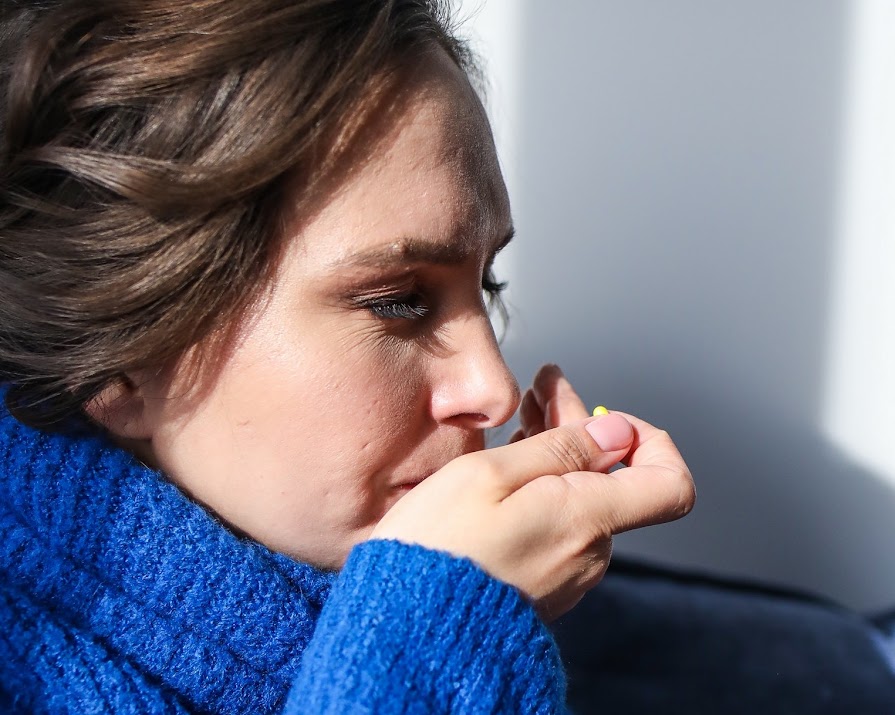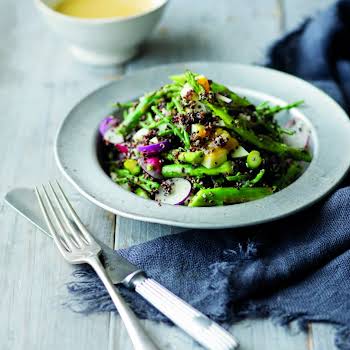Coronavirus fact check: from the safety of ibuprofen to Covid-19’s impact on pregnancy
By Grace McGettigan
18th Mar 2020
18th Mar 2020
Photo by Polina Tankilevitch from Pexels
When it comes to Covid-19 (the coronavirus that’s claimed more than 6,500 lives worldwide), there’s been a lot of fake news. Here we look at the facts
Social media can be both a blessing and a curse. In the midst of a global health pandemic (particularly one that involves a lot of self-isolation), it can be a source of comfort and connection. The downside? It also harbours a lot of false information.
Here we’re looking at the facts – the true answers to three burning questions: is ibuprofen safe to take if you have Covid-19? What happens if I catch the coronavirus while pregnant? And can my dog or cat catch and/or spread it?
The information below has been gathered from trustworthy health officials, including the HSE and World Health Organisation.
Ibuprofen and Covid-19
Over the weekend, a French health minister advised against the use of non-steroidal anti-inflammatory medication (such as ibuprofen), saying it may be associated with the worsening of Covid-19. This was met with scepticism across social media, with many people taking to Google to find out whether or not it’s true.
The HSE has since released a statement advising anyone with Covid-19 to continue taking any medication you were already on, unless you are told not to by a healthcare professional. This includes anti-inflammatories such as ibuprofen, naproxen or diclofenac.
Dr Colm Henry, Chief Clinical Officer of the HSE said, “Only take one anti-inflammatory medication at a time. It is okay to take paracetamol and an anti-inflammatory like ibuprofen at the same time.
“There is no evidence to stop any medication at this time,” he continued. “There is no need to order more medicines than you need, as this will affect the supply of medicines to others, and there is no disruption to the supply of medicines.”
What’s more, the Infectious Diseases Society of Ireland confirmed a message circulating on social media (in which it was alleged Cork University Hospital advised against using anti-inflammatory medication), was false. “[The post] should be removed from any social media site and anybody who has circulated the message is asked to remove it and explain that it is false,” they said.
As for the statement made by the French health minister, the HSE says, “This is based on French analysis and is not in line with the analysis and recommendations of the HSE and other EU countries.”
Dr Colm Henry added, “We are constantly evaluating emerging evidence about the most appropriate treatment of Covid-19. There is no specific treatment for coronavirus but many of the symptoms of the virus can be treated,” he said. “If you get the virus, your healthcare professional will advise treatment based on your symptoms. The appropriate medication for an individual with symptoms of Covid-19 will depend on your symptoms, your other conditions and your other medication.”
Covid-19 and pregnancy
The HSE has also said, “We are still learning about coronavirus (Covid-19) and we don’t yet know how it affects pregnant women and their babies.” That being said, they have shared the following information:
– One of the symptoms of coronavirus is fever (high temperature). This can increase the risk of complications during the first trimester (week 0 to 13). If you have a high temperature and you are pregnant, phone your GP or midwife.
– When you are pregnant, your body naturally weakens your immune system. This is to help your pregnancy continue successfully. It means that when you are pregnant you may pick up infections more easily.
All pregnant women should get the flu vaccine, the HSE advises. It’s important to note that this will protect you and your baby from the flu, not from coronavirus.
– If you have coronavirus and are pregnant, your obstetrician or midwife should talk to you about the safest way and time for your baby to be born. Other expert doctors may also be involved in your care (such as a doctor who specialises in infectious diseases) and you may be in an isolation room with en-suite facilities during labour. You may need to stay in this room throughout your hospital stay, the HSE adds.
For more official information about the impact of Covid-19 on pregnancy or labour, visit hse.ie/coronavirus-and-pregnancy.
Can my pet catch (or give me) Covid-19?
According to the World Health Organisation, there is no evidence that a dog, cat or any pet can transmit Covid-19.
The virus is mainly spread through droplets produced when an infected person coughs, sneezes or speaks. While there has been one instance of a dog being infected in Hong Kong, the levels were so low that it couldn’t be confirmed whether or not the animal was infected or just a carrier of the coronavirus.
The WHO says it will continue to monitor the latest research on this and other Covid-19 topics and will update the public as new findings become available. In the meantime, they ask everyone to protect themselves by cleaning your hands frequently and thoroughly.
For more protective measures (including advice on social distancing), visit who.int/emergencies.
Feature photo by Polina Tankilevitch from Pexels
Read more: 5 podcasts to help your mental health while in self-isolation
Read more: Dr Doireann O’Leary explains how to reduce Coronavirus anxiety
Read more: 11 heartwarming dog videos to distract yourself from Covid-19























